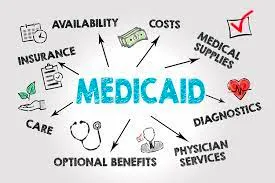The concept of a Universal Basic Income has only been in circulation for the last 100 years, and since then countries around the world have debated on the effectiveness of UBI if it were to be implemented. The most important decision when implementing UBI is whether or not countries will keep their preexisting social programs. This is a very important decision the decision will impact millions of lives. In the presentation by Steve Trost, his proposal was to eliminate social programs in replacement of roughly $9,000 to every citizen every year. He also proposed a flat tax of 25% and that government spending be cut to 9% of GDP.
I agree with much of Dr. Trost's proposal, but I do have concerns when it comes to what is being cut towards the federal budget, and given to the state power.
My first concern is that the allotted year cost for every citizen would not cover the cost already being covered through social programs. For example, could be schooling and health care. Trost mentions that with schools no longer being government-owned, people can leave the poverty-stricken district for better schools. However, with schools not costing money what would stop them from becoming extremely high cost like today's private schools and universities. So those who are currently attending a public school in a poor-performing school district could possibly not have enough to pay to go to a better school in another district. Healthcare is another example, many checkups are covered by Medicaid by those who are on it, if these social programs were to be dissolved then the portion of the UBI must go towards healthcare and insurance. With having to have insurance by law, those who once were on state healthcare paying nothing would now have to pay for insurance, deductibles, and medications. This adds up to be a large sum of money with the United States average deductible being just over $4,000.
My second concern is the reduction of Federal spending. As of 2021, the United States budget was 30% of our GDP, the decrease to 9% would be significant. The division of responsibilities would then be an issue as to what must the federal government delegate to the states. Would this mean that various sectors of the federal government would be cut, and the states are meant to individually pick them up? Or would the budget of various sectors decrease to small amounts? For instance, the military sector is very important in national security, the GDP of the United States military alone was almost 4% of GDP in 2021, almost half of the allotted budget the federal government would have with the new change. Then will all other mandatory federal expenditures, the sectors would be well over 9%.
Most everything else I agreed with Dr. Trost on. My final and largest issue has to do with the universal basic income in its entirety. I believe that if the UBI were to be implemented many social programs would still need to be in place. Some programs may be able to be dissolved such as food stamps where $9,000 a year would be able to cover a single person's food, however, if the federally funded healthcare system were to be dissolved, then the new added cost would outweigh the benefit of the UBI. Also, I believe that if a UBI were to be implemented it should be done to lift those over the poverty line. This of course goes against the “Universal” of a Universal Basic Income. I believe that there are many citizens within the U.S. that would not rely on or even need the additional $9,000, it would instead be a luxury. So I believe that the yearly allotted cost should go to those who need it the most, and most social programs should also be kept.
